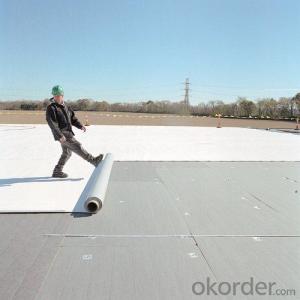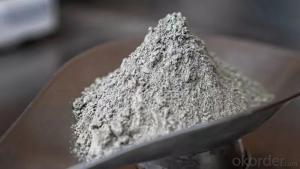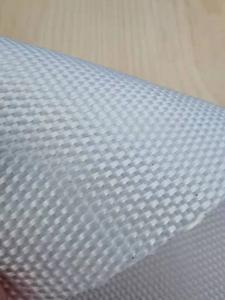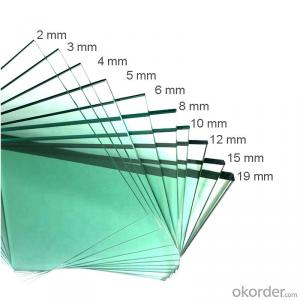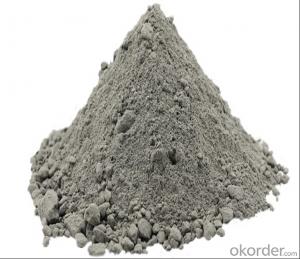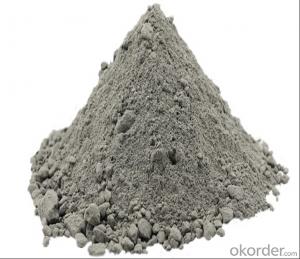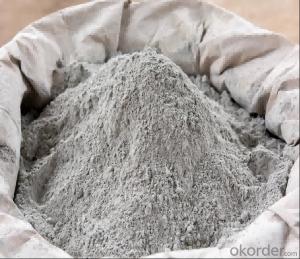PVC Waterproofing Membrane of Best Quality
- Loading Port:
- China main port
- Payment Terms:
- TT OR LC
- Min Order Qty:
- 5000 m²
- Supply Capability:
- 100000 m²/month
OKorder Service Pledge
OKorder Financial Service
You Might Also Like
PVC Waterproofing Membrane is widely used to waterproof field as a new kind of membrane.
1.Technical data of PVC Membrane
No. | Item | Index | ||||||
H | L | P | G | GL | ||||
1 | resin thickness over the fabric mm,≥ | — | 0.4 | |||||
2 | tensile strength | max tension (N/CM),≥ | — | 120 | 250 | 120 | ||
tensile strength/Mpa,≥ | 10 | — | — | 10 | — | |||
elongation at max tension/%,≥ | — | — | 15 | — | — | |||
break elongation/%,≥ | 200 | 150 | — | 200 | 100 | |||
3 | thermal size change/%,≤ | 2 | 1 | 0.5 | 0.1 | 0.1 | ||
4 | low temperature flexibility/℃ | —25 no crack | ||||||
5 | impermeability | 0.3MPa,2h impermeable | ||||||
6 | anti-impact | 0.5kg.impermeable | ||||||
7 | static load | 20kg impermeable | ||||||
8 | cut strength/(N/mm),≥ | |||||||
joint peeling strength/(N/mm),≥ | 4 | 3 | ||||||
9 | vertical tearing strength/(N/mm),≥ | 50 | — | — | 50 | — | ||
10 | trapezoid tearing strength/(N/mm),≥ | 150 | 250 | 220 | ||||
11 | water absorption(70℃,160h)% | after saturation≤ | 4 | |||||
after dry≤ | —0.4 | |||||||
12 | heating aging | hour/h | 672 | |||||
appearance | no bubble,crack,seperation | |||||||
tensile strength retention/% | ≥85 | |||||||
elongation retention/% | ≥80 | |||||||
low temperature flexibility retention/℃ | —20 no crack | |||||||
13 | anti chemical property | appearance | no bubble,crack,seperation | |||||
tensile strength retention/% | ≥85 | |||||||
elongation retention/% | ≥80 | |||||||
low temperature flexibility retention/℃ | —20 no crack | |||||||
14 | artificial | hour/h | 1500 | |||||
appearance | no bubble,crack,seperation | |||||||
tensile strength retention/% | ≥85 | |||||||
elongation retention/% | ≥80 | |||||||
low temperature flexibility retention/℃ | —20 no crack | |||||||
2.Characteristic of PVC Membrane
1.Strong tensile strength, high elongation, can fit big deformation of substrates.
2.Excellent anti-extreme weather property, can adapt to various environment temperature difference.
3.Suitable for exposed projects with long lifetime and good anti-aging property.
4.Can be welded firmly and reliably.
5.Outstanding root penetration resistance, best choice for planted roofs.
6.Simple and fast construction without pollution.
7.Great plasticity and fast treatment with corners and details.
3.Applicable scope of PVC Membrane
PVC sheet forms an effective barrier to liquid water or water vapor in the roof construction for industrial and civil engineering, underground engineering such as subway& tunnel, water conservancy such as water pools & ditch, shelter, grain depot, land filling, dyke, sewage treatment and basement.
4. FAQ of PVC Waterproofing Membrane
a.Can we get some samples before place order?
Answer: We can send the free samples to you by freight collect.
b.How many years can your PVC membrane guarantee?
Answer: We will guarantee the quality for 5 years at least.
c.Which countries you ever export the product?
Answer: We export the PVC membrane to South Africa, Middle east and even European countries.
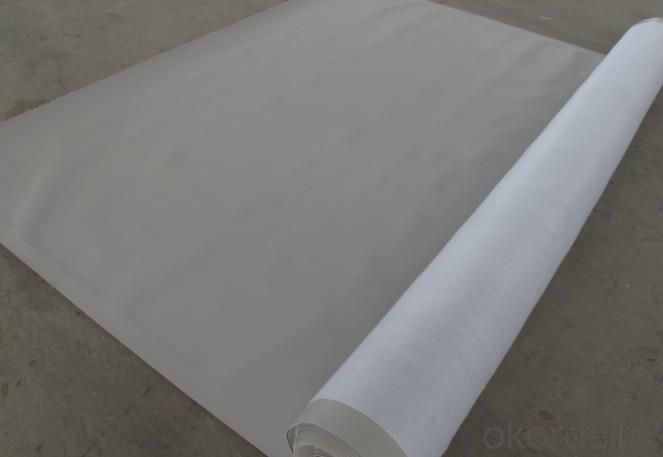
- Q:Can a waterproofing membrane be used on precast aluminum surfaces?
- Indeed, precast aluminum surfaces can be effectively protected by utilizing a waterproofing membrane. These membranes are specifically engineered to safeguard various surfaces, encompassing concrete, metal, and other materials, against water infiltration. By acting as a formidable barrier, the membrane effectively thwarts the ingress of water into the precast aluminum surface. This proves to be especially advantageous in locales with elevated moisture exposure, such as surrounding swimming pools or outdoor environments. It is crucial to select a waterproofing membrane that is aluminum-compatible in order to guarantee optimal adhesion and long-lasting efficacy.
- Q:Does a waterproofing membrane require any special considerations for installation in seismic zones?
- Yes, a waterproofing membrane does require special considerations for installation in seismic zones. Seismic zones are prone to earthquakes and ground movements, which can cause significant stress and strain on the building structure. When installing a waterproofing membrane in such areas, it is crucial to ensure that it can withstand the potential movements and vibrations caused by seismic activities. Some of the special considerations for installing a waterproofing membrane in seismic zones include: 1. Flexibility: The membrane should have sufficient flexibility to accommodate the movement of the building structure during an earthquake. It should be able to stretch, contract, and withstand dynamic forces without tearing or losing its waterproofing properties. 2. Compatibility: The waterproofing membrane should be compatible with the building materials and systems used in seismic zones. It is important to select a membrane that can bond well with the substrate and other construction components to create a seamless and robust waterproofing system. 3. Reinforcement: In high seismic areas, it is recommended to reinforce the waterproofing membrane with additional layers or reinforcements. This can be done by adding a fabric or mesh layer to enhance the membrane's tensile strength and resistance to tearing caused by seismic movements. 4. Proper installation techniques: The installation of the waterproofing membrane in seismic zones should follow specific guidelines and techniques to ensure its effectiveness. It may involve using specific adhesives, primers, or mechanical fastening systems to secure the membrane properly. 5. Quality control: Regular inspections and quality control measures should be implemented during and after the installation process. This helps to identify any potential issues or deficiencies in the waterproofing system, allowing for prompt repairs or adjustments to be made. By addressing these special considerations, the installation of a waterproofing membrane in seismic zones can help protect the building structure from water intrusion and potential damage caused by earthquakes. Consulting with experienced professionals and following industry standards and guidelines is crucial to ensure a successful installation in these challenging environments.
- Q:Is a waterproofing membrane resistant to hydrocarbons or oils?
- Yes, a waterproofing membrane is generally resistant to hydrocarbons or oils. The materials used in waterproofing membranes, such as bitumen or synthetic polymers, are typically designed to have high resistance to various chemicals, including hydrocarbons and oils. This resistance helps to ensure that the membrane remains effective in preventing water penetration even in the presence of these substances. However, it is important to note that the specific resistance level may vary depending on the type and quality of the waterproofing membrane. It is always recommended to consult the manufacturer or supplier to determine the exact resistance capabilities of a specific waterproofing membrane.
- Q:Can a waterproofing membrane be used on tunnels with soundproofing systems?
- Tunnels with soundproofing systems can benefit from the use of a waterproofing membrane. It is common practice to integrate waterproofing membranes with soundproofing systems in tunnels. This is because tunnels are prone to water infiltration, which can cause structural damage and impact the performance of the soundproofing system. By applying a waterproofing membrane, the tunnel can be shielded from water intrusion, ensuring the durability and efficacy of the soundproofing system. Moreover, the waterproofing membrane aids in maintaining a dry and comfortable environment in the tunnel, which is essential for the efficient operation of the soundproofing system. Therefore, combining a waterproofing membrane with a soundproofing system is highly recommended in tunnels to provide both water protection and sound insulation.
- Q:Does a waterproofing membrane require any specific safety precautions during installation?
- Yes, installing a waterproofing membrane does require specific safety precautions. Here are some key precautions to consider: 1. Personal Protective Equipment (PPE): Installers should wear appropriate PPE, including gloves, safety glasses, and protective clothing to prevent skin contact with the membrane and any potential chemical hazards. 2. Adequate Ventilation: Ensure the installation area is well-ventilated to prevent the buildup of fumes or vapors. If working in an enclosed space, use proper ventilation systems to remove any potentially harmful gases or odors. 3. Hazardous Chemicals: Some waterproofing membranes may contain hazardous chemicals or solvents. Installers should carefully read and follow the manufacturer's instructions for handling and using these products. Proper storage, handling, and disposal of chemicals should be observed to avoid accidents or environmental contamination. 4. Slips and Falls: During installation, the surface can become slippery, especially if the membrane is applied on wet surfaces. Installers should take precautions to secure their footing and use appropriate safety equipment like harnesses or guardrails when working at heights to prevent falls. 5. Heat Hazards: Some waterproofing membranes require the use of heat for proper installation. Installers should take precautions when working with heat sources like torches or heat guns to prevent burns or fire hazards. Fire extinguishers should be readily available, and proper training on fire safety protocols is essential. 6. Electrical Safety: Waterproofing membranes may be installed in areas where electrical systems are present. Installers should be cautious when working near live electrical wires or outlets and follow proper electrical safety procedures to prevent electric shocks or fires. It is important for installers to receive proper training and follow all safety guidelines provided by the manufacturer to minimize the risk of accidents, injuries, or property damage during the installation process.
- Q:Is a waterproofing membrane resistant to punctures or tears?
- Yes, a waterproofing membrane is designed to be resistant to punctures and tears. It is specifically engineered to provide a durable barrier that can withstand potential damage from sharp objects or external forces.
- Q:Can waterproofing membranes be applied on roofs?
- Roofs can have waterproofing membranes applied to them, a practice commonly employed in the construction industry to add an extra layer of protection against water infiltration. These membranes, typically composed of synthetic materials like PVC, TPO, or EPDM, possess high resistance to water and effectively prevent leaks and water damage on roofs. Applying waterproofing membranes on roofs is a proven method for enhancing the longevity and durability of the roofing system, particularly in areas prone to heavy rainfall or extreme weather conditions. Moreover, waterproofing membranes are flexible and can be easily installed on various roofing materials such as concrete, metal, or asphalt shingles. Consequently, if you desire a watertight roof and wish to safeguard your property from water-related problems, the utilization of waterproofing membranes offers a dependable and efficient solution.
- Q:Can a waterproofing membrane be used for a basement floor moisture barrier?
- Indeed, a basement floor moisture barrier can be established by utilizing a waterproofing membrane. The primary purpose of a waterproofing membrane is to impede the penetration of water into surfaces, thereby offering a highly efficient solution for safeguarding a basement floor against moisture. Through the application of a waterproofing membrane, a protective barrier is formed to prevent water from infiltrating the concrete floor, subsequently minimizing the potential hazards of mold, mildew, and water damage. To attain optimal effectiveness, it is crucial to ensure the accurate installation of the waterproofing membrane, covering the entirety of the basement floor. Moreover, it is advisable to seek guidance from a professional to ascertain the most appropriate type of waterproofing membrane suitable for your specific basement floor and moisture conditions.
- Q:Can a waterproofing membrane be used in renovation projects?
- Indeed, renovation projects can greatly benefit from the utilization of a waterproofing membrane. The incorporation of this crucial component is vital in guaranteeing the durability and long-lasting nature of the structure being renovated. Its primary purpose is to establish a barrier that effectively prevents water infiltration, thereby shielding the building from any potential harm or leaks caused by water. Throughout the course of a renovation project, it is quite common to come across areas where water resistance is of utmost importance. These areas typically include basements, bathrooms, showers, balconies, and roofs. By applying a waterproofing membrane in these specific locations, one can effectively mitigate any moisture-related issues, inhibit the growth of mold, and prevent any structural damage that may arise as a result of water seepage. It is worth noting that waterproofing membranes can be utilized in a wide range of renovation projects, spanning across residential, commercial, and industrial settings. Regardless of whether it is a minor bathroom renovation or a larger-scale refurbishment of a commercial building, the incorporation of a waterproofing membrane will undoubtedly fortify the structure against any water-related complications. Additionally, it is important to mention that there are various options available when it comes to waterproofing membranes. These options encompass liquid-applied membranes, sheet membranes, and cementitious coatings. The availability of these choices ensures that one can select the most suitable membrane for a particular renovation project, taking into consideration factors such as budget, substrate, and the desired level of waterproofing. To summarize, the inclusion of a waterproofing membrane is an indispensable element in renovation projects, as it serves to safeguard against water damage and guarantees the longevity of the renovated structure. By opting for the utilization of a waterproofing membrane, property owners can experience a sense of tranquility, knowing that their renovated space is adequately protected against any potential water-related complications.
- Q:Can a waterproofing membrane be used on terrazzo surfaces?
- Yes, a waterproofing membrane can be used on terrazzo surfaces. Terrazzo is a durable and versatile flooring material made from a combination of marble, granite, quartz, or glass chips embedded in a cementitious or epoxy matrix. While terrazzo is generally resistant to water, it is not completely waterproof and can absorb moisture if left untreated. Applying a waterproofing membrane on terrazzo surfaces can help protect it from water damage, staining, and discoloration. The membrane acts as a barrier, preventing water and other liquids from seeping into the terrazzo, thus enhancing its longevity and maintaining its aesthetic appearance. It is important to ensure that the waterproofing membrane is compatible with the terrazzo material and is applied according to the manufacturer's instructions for optimal effectiveness.
1. Manufacturer Overview |
|
|---|---|
| Location | |
| Year Established | |
| Annual Output Value | |
| Main Markets | |
| Company Certifications | |
2. Manufacturer Certificates |
|
|---|---|
| a) Certification Name | |
| Range | |
| Reference | |
| Validity Period | |
3. Manufacturer Capability |
|
|---|---|
| a)Trade Capacity | |
| Nearest Port | |
| Export Percentage | |
| No.of Employees in Trade Department | |
| Language Spoken: | |
| b)Factory Information | |
| Factory Size: | |
| No. of Production Lines | |
| Contract Manufacturing | |
| Product Price Range | |
Send your message to us
PVC Waterproofing Membrane of Best Quality
- Loading Port:
- China main port
- Payment Terms:
- TT OR LC
- Min Order Qty:
- 5000 m²
- Supply Capability:
- 100000 m²/month
OKorder Service Pledge
OKorder Financial Service
Similar products
New products
Hot products
Hot Searches
Related keywords
